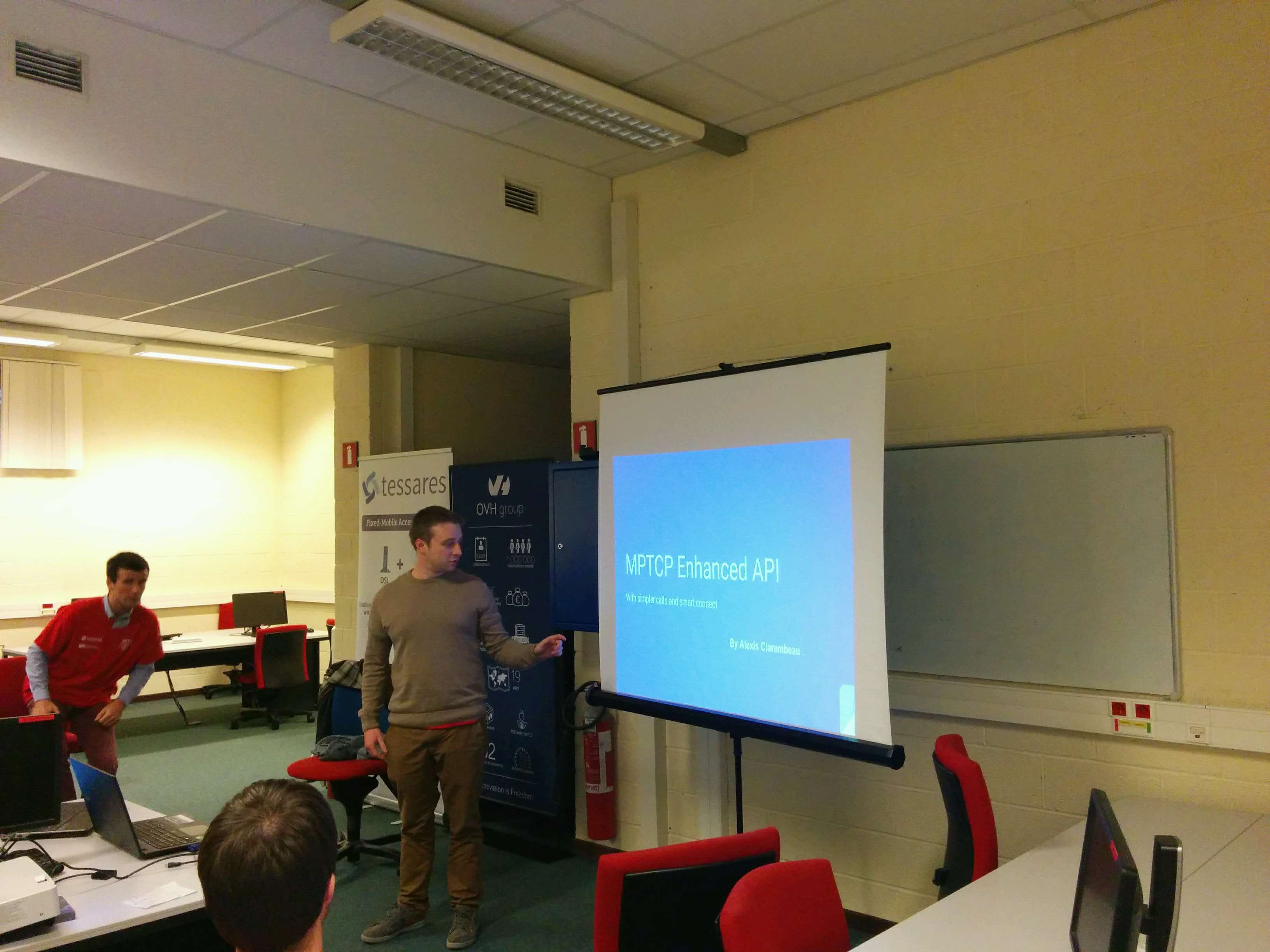Multipath TCP projects during the IETF97 Hackathon
The IETF organised a hackathon during the weekend before the IETF’97 meeting in Seoul. There are already several large scale deployments of Multipath TCP. However, these deployments focus on very specific utilisations of Multipath TCP for special applications or through various forms of proxies.
Recently, Benjamin Hesmans has released an enhanced socket API for Multipath TCP . This API has the potential of enabling new use cases for Multipath TCP by allowing application developpers to control the establishment and the utilisation of the Multipath TCP subflows. To understand how this new API could be used, we organised a remote hackathon at Ecole Polytechnique de Louvain. We had two teams working on Multipath TCP during the IETF’97 Hackathon. In Seoul, 5 IETFers, including three PhD students from the IP Networking Lab worked in Seoul and 25 students worked in Louvain-la-Neuve on this new socket API.
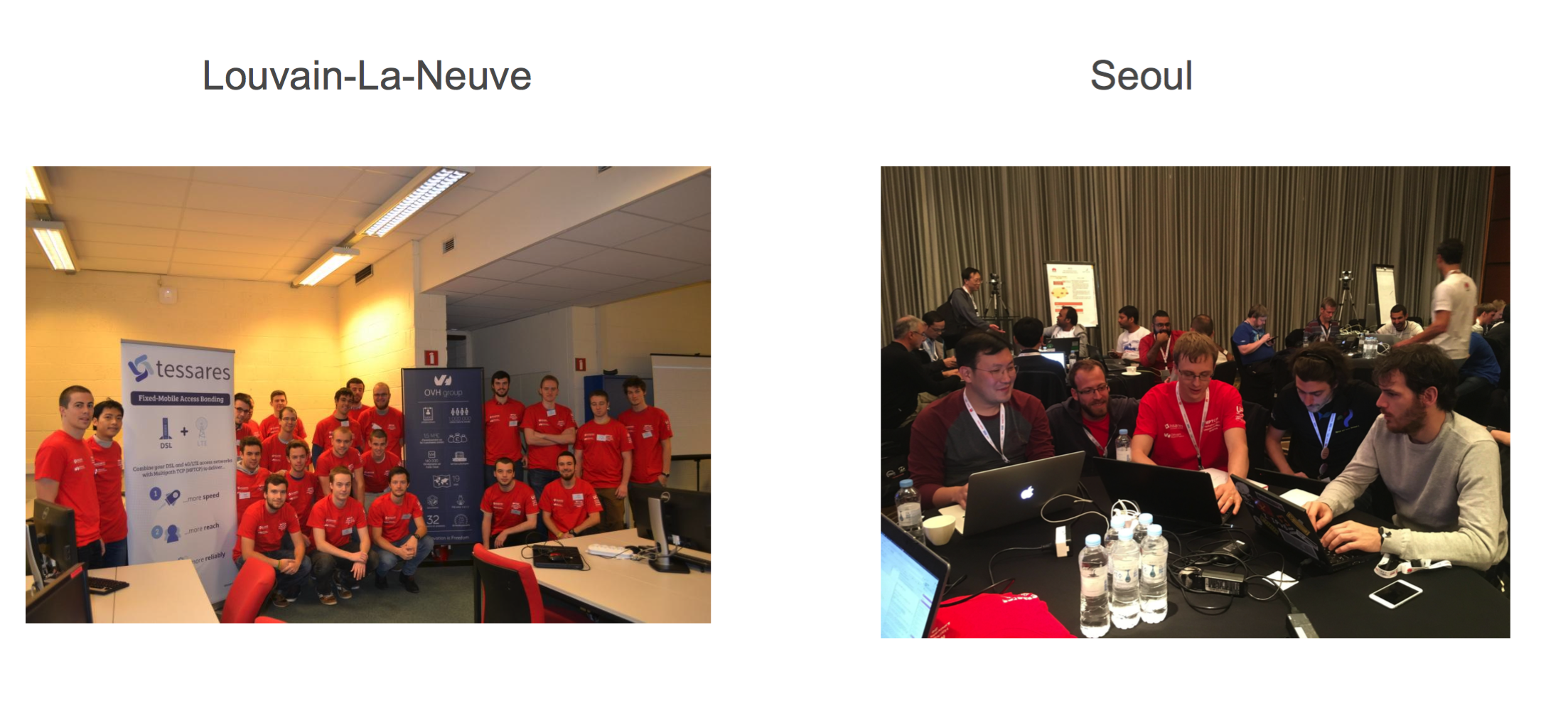
These two teams received the best overall award from the organisers of the IETF’97 Hackathon in Seoul for their effort.
The Seoul team, composed of Benjamin Hesmans, Fabien Duchene, Olivier Tilmans, SungHoon Seo and François Serman worked on developing a library that can be pre-loaded before launching an unmodified application to use the new socket API to control how this application uses the underlying Multipath TCP subflows. This is described in these slides
In Louvain-la-Neuve, eight teams worked on different use cases.
Two groups of students worked on porting the Multipath TCP socket API to other langages than C. They have created prototype code for Java and Ruby. The other teams worked on curl, lighttpd, Openssh, ipef3 and nc.
Grégory Vander Schueren, Raphaël Bauduin and Thibault Gérondal worked on modifying Ruby to support the new Multipath TCP socket API. They obtained running code to support some of the new socket operations directly from ruby. Their work is summarised in these slides

Guillaume Demaude and Pierre Ortegat have analysed the problem of supporting the new Multipath TCP socket API in Java. It turned out that the Socket class in Java had not been designed to be extended. They have thus written static methods that implement the new socket API. Their results are in summarised in these slides and their code is available from https://github.com/reirep/matcp-java.git

Hoang Tran Viet, Remi Chauvenne and Thibault Libioulle have worked on iperf3, a throughput measurement tool. They have added the support for Multipath TCP inside iperf3 and modified the application to exchange the addresses of the client and of the server that are used to perform the tests. Their results are summarised in these slides
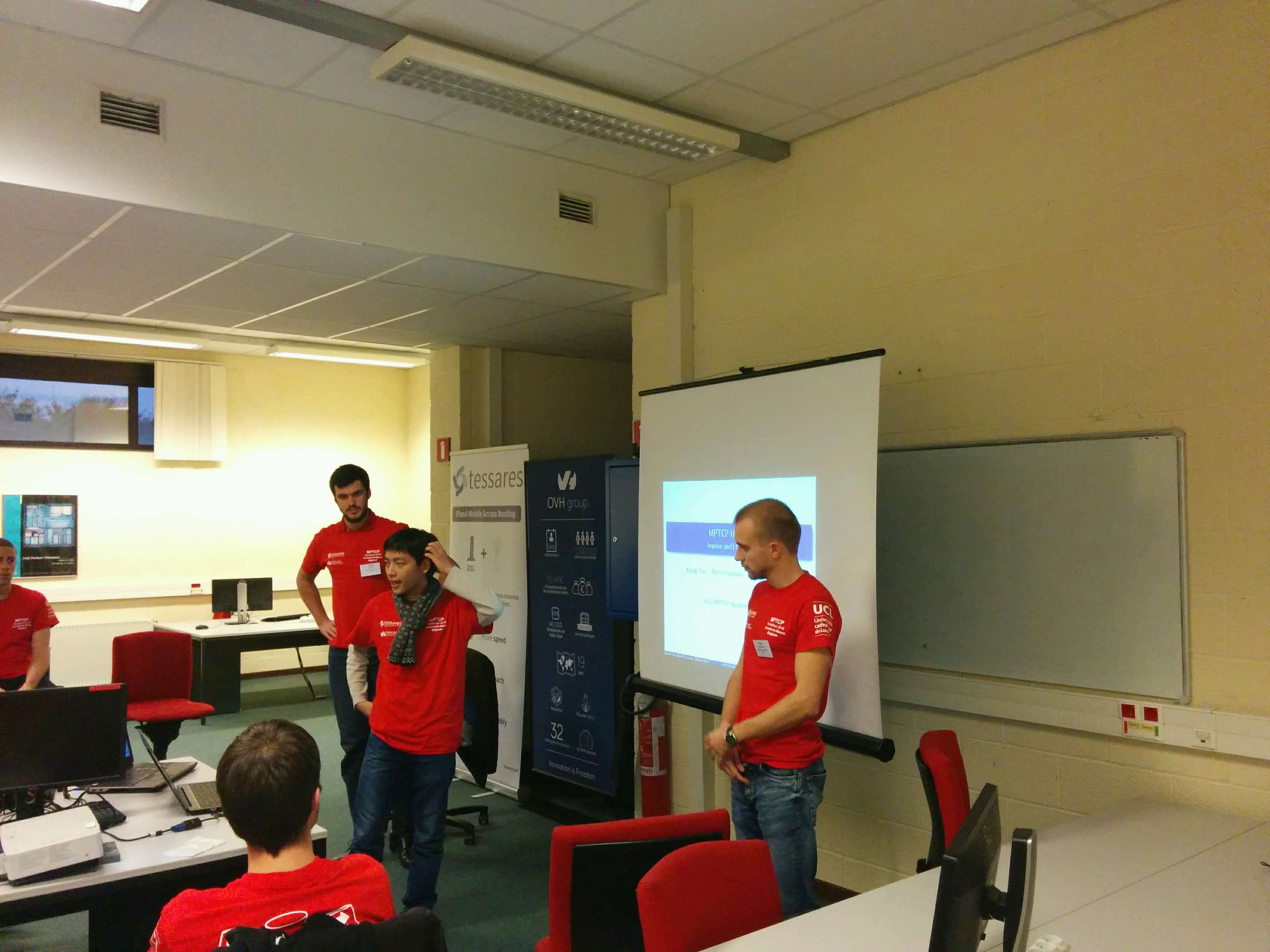
Charles-Henry Bertrand and Sylvain Dassier have explored how to modify the netcat testing tool to support Multipath TCP. Their results are summarised in these slides

Maxime Beugom, Antoine Denauw, Alexandre Dubray, Julien Gomez and Julian Roussieau have worked on Openssh. Their prototype controls changes the underlying subflows after the transmission of a number of bytes or after some time. This prototype demonstrates that by influencing the underlying subflows a security application can select different paths and thus counter on-path attacks. Their results are summarised in these slides Their code is posted on https://github.com/Derwaan/openssh-portable
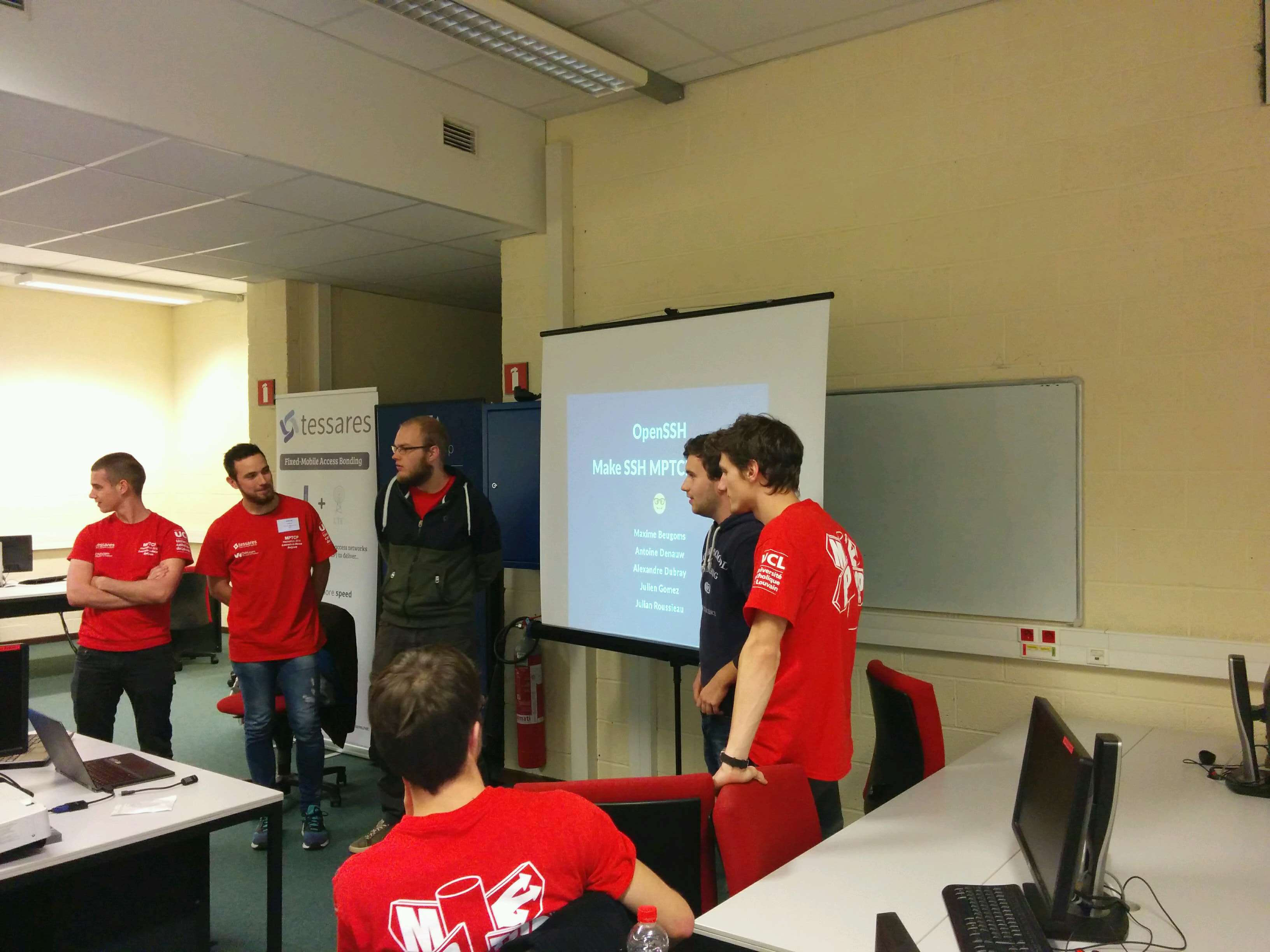
Arnaud Dethise and Jacob Eliat-Eliat have modified curl to only create Multipath TCP subflows on connections that carry a sufficient number of bytes or last a sufficient time. Experiments have shown that Multipath TCP does not bring benefits for very short flows and this demonstrates how an application can defer the establishment of subflows. Their results are summarised in these slides and their prototype code is available from https://github.com/adethise/curl/tree/mptcp
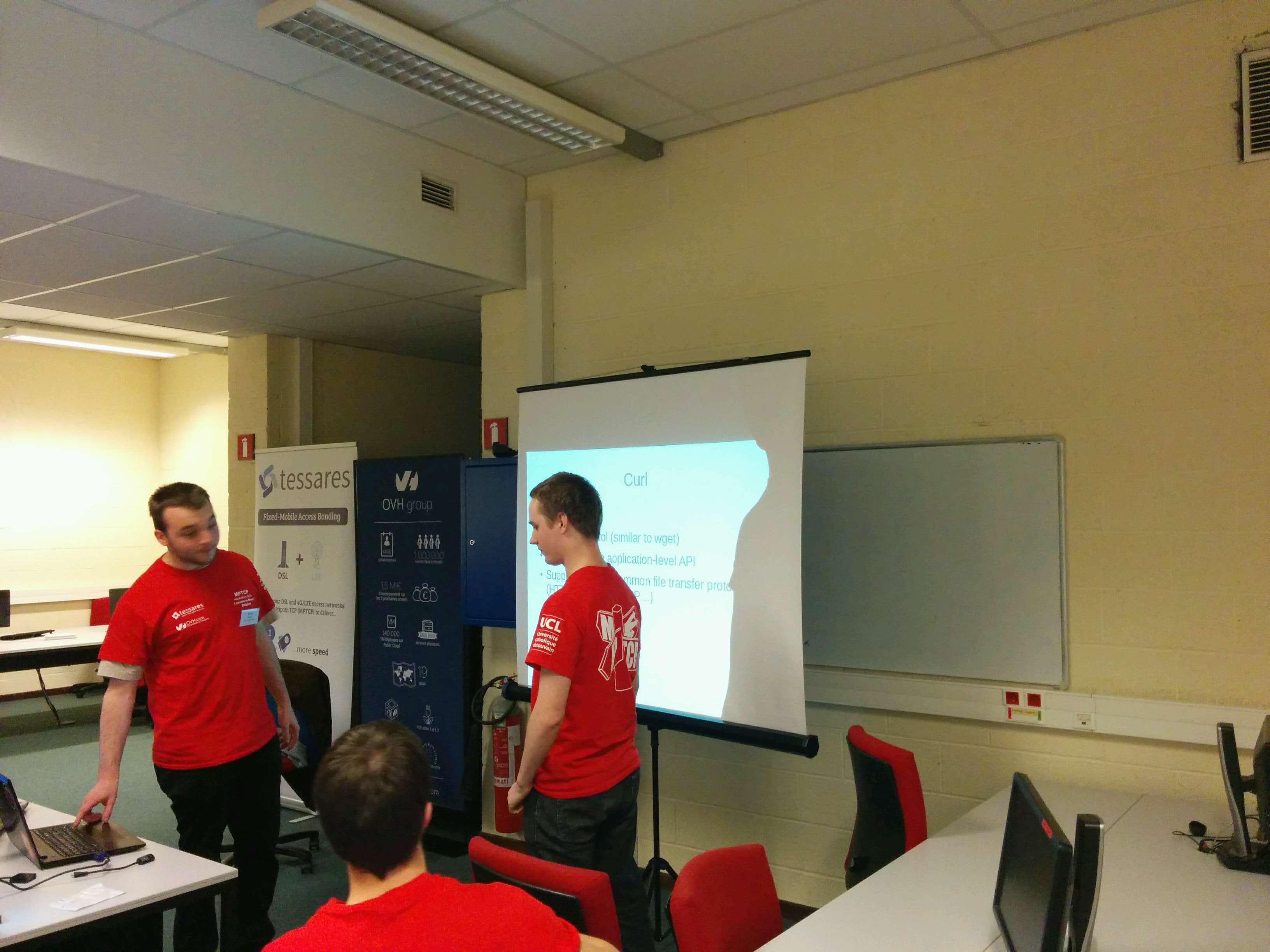
Maxime Andries, Pablo Gonzalez Alvarez and Antoine Lambot have explored the possibility of creating subflows from the server. For this, they started from the lighttpd server and have modified it to create subflows when the web object returned by the server is large enough. Their results are summarised in these slides
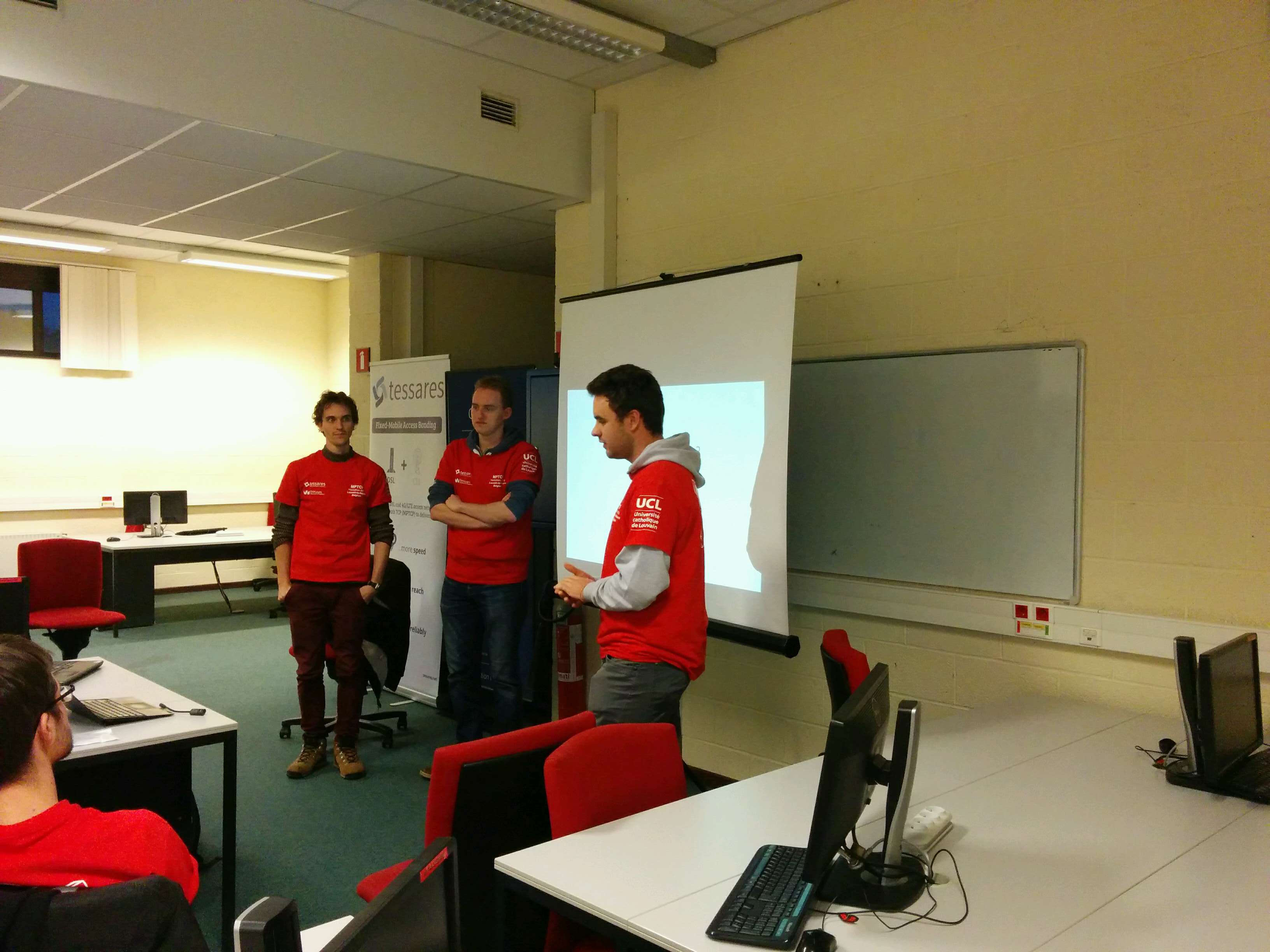
Alexis Clarembeau has explored the possibility of developing a higher-level API for Multipath TCP that exposes a more abstract interface to the application. His results are summarised in these slides
